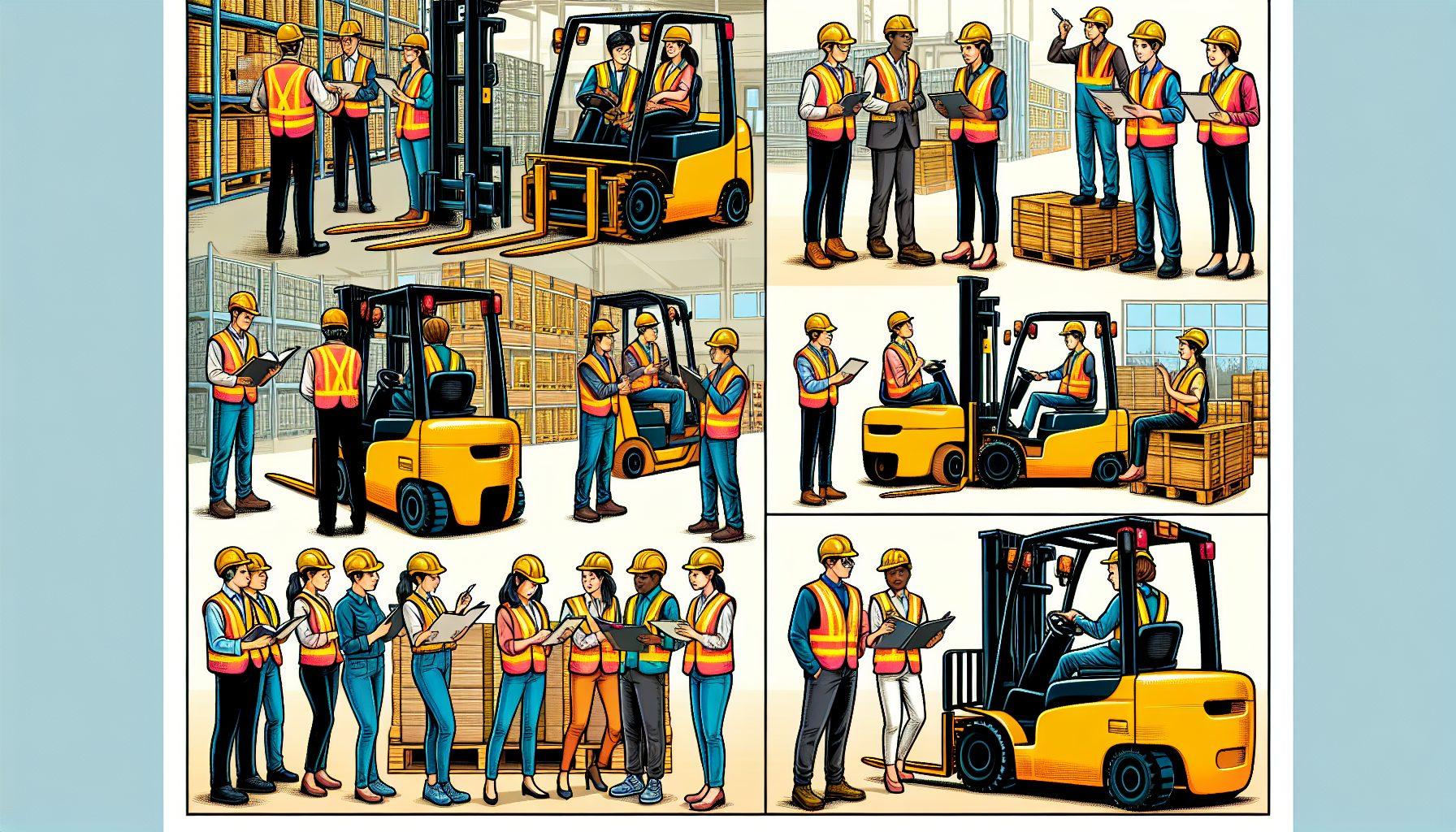Warehouse safety is a top priority for businesses across different industries. With the use of heavy machinery and equipment, it is crucial to implement effective safety measures to prevent accidents and injuries in the workplace. One of the most common tools used in warehouses is the forklift. Forklifts are essential for lifting and moving heavy loads efficiently, but they can also pose serious risks if not used properly. In this article, we will explore how to implement forklift safety measures in various industries to ensure a safe working environment.
Construction Industry
The construction industry often deals with large-scale projects that require the movement of materials and equipment on-site. Forklifts play a vital role in these operations, but due to the nature of the industry, there are additional safety considerations to keep in mind. Here are some key safety measures to implement in the construction industry:
- Provide proper training: All forklift operators should receive thorough training on how to safely operate the equipment. Training should cover topics such as load capacity, stability, and maneuvering in different terrains.
- Regular maintenance: Construction sites can be challenging environments, so it is crucial to regularly inspect and maintain forklifts to ensure they are in optimal condition. This includes checking brakes, tires, lights, and other crucial components.
- Clear visibility: Due to the nature of construction sites, visibility can be limited. Ensure that forklift operators have clear visibility while operating the equipment by installing mirrors, cameras, and warning signs.
- Safe loading and unloading: Train operators on the proper techniques for loading and unloading materials using forklifts. This includes securely fastening loads, maintaining balance, and avoiding overloading.
By implementing these safety measures, the construction industry can minimize the risk of accidents and ensure a safe working environment for all workers, reducing the likelihood of injuries and damages.
Retail Industry
In the retail industry, forklifts are commonly used for tasks such as unloading and organizing inventory in warehouses and distribution centers. While the scale of operations may be different from the construction industry, safety remains a top priority. Here are some specific safety measures to implement in the retail industry:
- Proper training: Provide comprehensive training for forklift operators on safe operating procedures, including navigating narrow aisles, working in confined spaces, and handling different types of merchandise.
- Clear signage and markings: Clearly mark pedestrian walkways, forklift-only zones, and designated loading and unloading areas. This helps to separate forklift traffic from pedestrian traffic, reducing the risk of accidents.
- Regular equipment checks: Conduct routine inspections of forklifts to ensure they are in proper working order. Check for any malfunctions, leaks, or worn-out parts and address them promptly.
- Restrict unauthorized access: Limit access to forklifts to trained operators only. This prevents unqualified personnel from operating the equipment and reduces the risk of accidents.
Implementing these safety measures in the retail industry helps to create a safe and efficient working environment, reducing the chances of accidents, injuries, and damage to inventory or infrastructure.
Manufacturing Industry
In the manufacturing industry, forklifts are used extensively for the movement of raw materials, finished products, and components within the facility. Safety is of utmost importance to prevent accidents that can disrupt production and harm workers. Here are some safety measures to implement in the manufacturing industry:
- Operator training: Provide comprehensive training to forklift operators covering all aspects of safe operation, including loading, stacking, and maneuvering in tight spaces.
- Regular maintenance: Set up a regular maintenance schedule to inspect and service forklifts. This includes checking fluids, brakes, steering, and other vital components to ensure optimal performance.
- Clearly defined pathways: Clearly mark pathways for forklift traffic and separate them from pedestrian walkways. This prevents collisions and ensures a smooth flow of materials within the facility.
- Clear communication: Establish effective communication protocols between forklift operators and other workers, including using hand signals, radios, and designated communication devices. This helps to avoid accidents caused by miscommunication.
By implementing these safety measures in the manufacturing industry, businesses can improve productivity, minimize downtime due to accidents, and create a safer work environment for their employees.
In conclusion, forklifts are indispensable tools in various industries, but they must be used safely to prevent accidents and injuries. By implementing comprehensive safety measures, which include proper training, regular maintenance, clear visibility, safe loading and unloading procedures, and effective communication, businesses can significantly reduce the risks associated with forklift operations. Remember, safety should always be a top priority in any workplace.
If you would like to learn more about warehouse safety and how HCO Innovations can help optimize your warehouse operations for improved safety and efficiency, please visit HCO Innovations.

